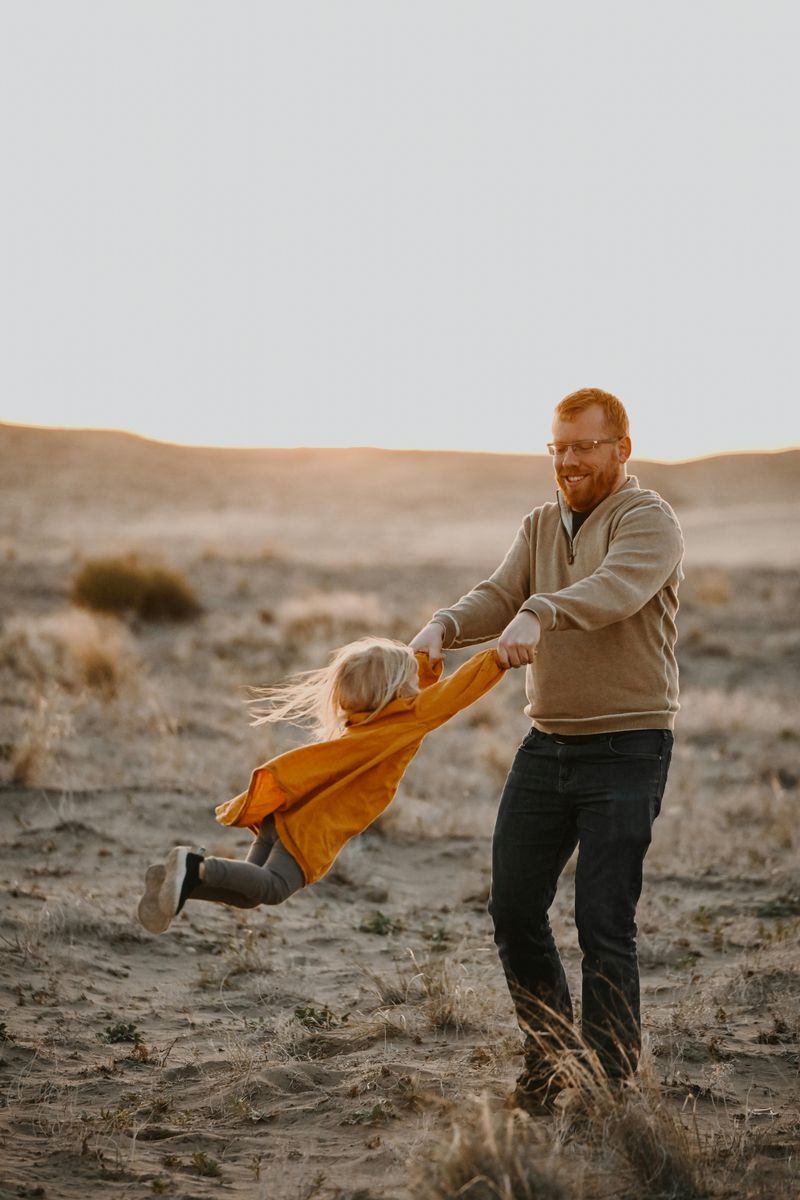Parents have a knack for dishing out advice that seems irrelevant when we’re young. Their words of wisdom often fall on deaf ears as we charge ahead, convinced we know better. Only years later do we realize those annoying lectures contained nuggets of truth that could have saved us from painful mistakes. Here are twenty brutal life lessons many of us learn the hard way.
1. Money Doesn’t Grow on Trees

Financial responsibility hits like a brick wall once you’re paying your own bills. That carefree spending in your youth? It creates habits that are incredibly hard to break later.
Learning to budget, save, and invest early gives you a massive head start in life. The compound interest your parents mentioned wasn’t just boring math—it was the secret to building wealth without extraordinary effort.
Many adults struggle paycheck to paycheck because they never developed healthy money habits when the stakes were lower. The freedom that comes with financial stability is worth every sacrifice.
2. Your Reputation Takes Years to Build, Seconds to Destroy

Social media makes this lesson particularly painful today. That questionable post or momentary lapse in judgment can haunt you for years, affecting job prospects and relationships in ways you never imagined.
Trust is like glass—once broken, it never quite looks the same when repaired. People remember negative impressions far longer than positive ones, making reputation management an ongoing responsibility.
Your parents weren’t being dramatic when they worried about the company you kept or how you presented yourself. They understood that your personal brand follows you everywhere, often preceding you into rooms you haven’t even entered yet.
3. Health Is Wealth You Can’t Buy Back

Remember rolling your eyes when told to eat vegetables or get enough sleep? Those habits form the foundation of lifelong health. The human body keeps score, and the bill comes due eventually.
Young bodies forgive abuse that older ones won’t tolerate. The resilience of youth masks the accumulating damage from poor diet, lack of exercise, and insufficient rest until problems become chronic and harder to reverse.
Many middle-aged adults would trade significant wealth to regain the health they carelessly squandered. Prevention truly is easier than cure—a lesson that becomes painfully clear with each passing decade.
4. Real Friends Are Rare Treasures

The popularity contest of youth creates the illusion that friendship quantity matters more than quality. As life progresses, those crowds thin dramatically, revealing who truly shows up when life gets hard.
Authentic friendships require maintenance and mutual investment. The friends who stick around through job losses, heartbreaks, and major life transitions are worth their weight in gold—and they’re surprisingly few.
Your parents recognized the difference between genuine connections and fair-weather friends long before you could. Their warnings about certain relationships weren’t controlling but protective of your emotional well-being.
5. Education Opens Doors Money Can’t Buy

The resistance to learning feels foolish in retrospect. Education isn’t just about degrees or credentials—it’s about developing critical thinking skills that protect you from manipulation and open opportunities throughout life.
Knowledge compounds like interest, building on itself to create new possibilities. The most successful people never stop learning, regardless of formal education.
Your parents’ push for educational achievement wasn’t about bragging rights at family gatherings. They understood that in an increasingly complex world, your ability to learn, adapt, and think independently would determine your freedom more than any other factor.
6. Time Accelerates as You Age

Remember summer vacations that seemed to last forever? That perception of endless time vanishes in adulthood. Years begin to blur together as responsibilities multiply and routines solidify.
The warning to cherish youth wasn’t just nostalgic rambling. Neurologically, time perception actually speeds up as we age and experience fewer novel events. This makes intentional memory-making increasingly important.
Many adults realize too late they postponed joy for a future that arrived faster than expected. The balance between delayed gratification and present enjoyment becomes one of life’s most challenging calculations.
7. Actions Speak Louder Than Words

Promises and intentions count for little in the real world. Results and consistency reveal true character and commitment. This applies equally to relationships and professional life.
The parent who told you to watch what people do rather than what they say was giving you a shortcut to avoiding heartache. Behavior patterns rarely lie, even when words sound convincing.
Many adults waste years on relationships and situations where actions and words don’t align. Learning to recognize this mismatch early saves tremendous time and emotional energy—a skill that becomes more valuable with each passing year.
8. Debt Is a Modern Form of Slavery

Credit cards and loans create an illusion of wealth that can quickly become a trap. The freedom to buy what you want now often leads to years of restricted choices later as debt payments consume your income.
Compound interest works magnificently for investors but brutally against borrowers. The warning to avoid unnecessary debt wasn’t old-fashioned thinking but mathematical wisdom.
Many adults spend their prime earning years servicing debts from their youth rather than building wealth or pursuing dreams. The temporary pleasure of consumption rarely justifies the long-term burden of financial obligation.
9. Comfort Zones Limit Growth

Security feels good but rarely leads to development. The parent who pushed you to try new things, speak up, or take healthy risks was investing in your future capacity to handle life’s inevitable challenges.
Personal evolution happens at the edge of discomfort. The brain creates new neural pathways when confronted with novel situations, building resilience and adaptability that serve you throughout life.
Many adults realize too late that avoiding discomfort also meant avoiding opportunity. The skills most valuable in navigating adulthood—from negotiation to relationship repair—all require willingness to step beyond what feels safe and familiar.
10. Everyone Is Fighting Their Own Battles

The world doesn’t revolve around your problems. This harsh reality check becomes liberating when fully absorbed. Understanding that everyone struggles with their own challenges develops empathy and perspective.
Your parents’ reminders about kindness weren’t just about manners. They recognized that compassion creates connection in a world where everyone carries hidden burdens.
Many adults waste energy feeling uniquely victimized by circumstances that are actually universal human experiences. Recognizing the common struggle creates opportunities for meaningful support networks and reduces unnecessary suffering caused by isolation.
11. Hard Work Beats Talent When Talent Doesn’t Work Hard

Natural gifts create early advantages that often backfire later. Those who coast on talent frequently develop poor work ethics that eventually limit their potential.
Consistency compounds over time. The parent who emphasized showing up, putting in effort, and persisting through difficulty was teaching a success principle that applies across all domains of life.
Many naturally gifted adults find themselves surpassed by more determined peers in mid-career. The habits formed in youth—particularly around discipline and delayed gratification—often matter more than innate ability when measured across decades rather than moments.
12. Learn to Cook and Clean

Basic self-sufficiency skills save thousands of dollars annually. Beyond the financial impact, these abilities provide independence and control over your health and environment.
Restaurant meals and cleaning services add up quickly. The parent who insisted you learn these skills wasn’t being old-fashioned but economically savvy.
Many adults struggle with unnecessary expenses and health issues directly connected to outsourcing these fundamental tasks. The ability to create nutritious meals and maintain your living space represents freedom that becomes increasingly valuable as economic pressures mount.
13. Your Partner Choice Affects Everything

Few decisions impact your happiness more than who you choose to share your life with. The parent who seemed overly concerned about your romantic choices understood this wasn’t just about love but about life trajectory.
Relationships amplify both joy and misery. A supportive partner can make challenges manageable, while a toxic one can make even success feel hollow.
Many adults realize too late that compatibility in values, financial approaches, and life goals matters more than initial attraction. The compounding effect of thousands of small interactions with your partner shapes your mental health, opportunities, and overall life satisfaction in profound ways.
14. What Others Think Matters Less Than You Imagine

The fear of judgment keeps many people from pursuing their authentic path. Most people are too focused on their own concerns to spend much time judging yours.
Freedom comes from realizing most opinions about you are both temporary and inconsequential. The parent who encouraged you to be yourself rather than follow the crowd was offering liberation from an invisible prison.
Many adults waste years conforming to expectations before realizing that authentic self-expression attracts the right opportunities and relationships. The courage to be genuinely yourself becomes easier when you recognize how little others actually think about your choices.
15. Save for Rainy Days

Life throws curveballs when least expected. The emergency fund your parents advocated isn’t just about money—it’s about creating a buffer between you and disaster that preserves your options and dignity.
Financial emergencies compound quickly without reserves. A small problem becomes catastrophic when it triggers debt cycles or forces bad decisions due to desperation.
Many adults experience unnecessary stress and limitation because they lack this fundamental safety net. The peace of mind that comes from knowing you can handle unexpected expenses represents a form of freedom that affects every aspect of wellbeing.
16. Patience Truly Is a Virtue

Instant gratification culture makes patience seem obsolete. Yet the ability to delay reward remains one of the strongest predictors of long-term success and happiness.
Good things—relationships, skills, wealth, health—develop gradually through consistent small actions. The parent who taught you to wait was building your capacity for meaningful achievement.
Many adults sabotage progress by abandoning efforts before results materialize. The compounding effect of patience becomes apparent only in retrospect, when you can connect years of small, consistent choices to significant outcomes that couldn’t have been rushed.
17. Politeness Opens Doors

Basic courtesy creates opportunities that talent alone cannot secure. The parent who insisted on please, thank you, and respectful communication wasn’t just being proper—they were teaching practical social intelligence.
First impressions happen only once. In a world where technical skills are increasingly common, interpersonal skills often become the differentiating factor in both professional and personal contexts.
Many capable adults find themselves limited by poor social skills that could have been developed early. The compound interest of positive impressions builds a reputation that precedes you, creating opportunities that would otherwise remain closed.
18. Learn to Apologize Properly

Genuine accountability repairs what defensiveness destroys. The ability to acknowledge mistakes without excuses or deflection builds trust that sustains relationships through inevitable conflicts.
A sincere apology has remarkable healing power. The parent who modeled or taught proper apologies was equipping you with relationship superglue.
Many adults remain trapped in cycles of conflict because they never learned this fundamental skill. The freedom that comes from moving beyond blame into resolution creates space for growth and connection that would otherwise be consumed by ongoing tension.
19. Nature Heals What Technology Stresses

Regular connection with the natural world isn’t luxury but necessity. The parent who encouraged outdoor time understood something fundamental about human psychological needs.
Screen dependency creates problems that fresh air helps solve. Research consistently shows that nature exposure reduces stress hormones, improves mood, and enhances cognitive function.
Many adults find themselves struggling with anxiety and attention issues directly linked to nature deficit. The regular habit of disconnecting from devices and reconnecting with natural environments provides a form of reset increasingly essential in our hyper-connected world.
20. Change Is the Only Constant

Resistance to inevitable change causes needless suffering. The parent who encouraged adaptability rather than rigidity was preparing you for life’s only certainty—that everything evolves.
Flexibility creates resilience. Those who cling to how things “should be” rather than adapting to what is spend enormous energy fighting reality instead of navigating it effectively.
Many adults struggle with transitions that could be opportunities because they never developed comfort with uncertainty. The freedom that comes from embracing change rather than fearing it allows for growth that remains closed to those seeking permanent stability in an impermanent world.

Comments
Loading…